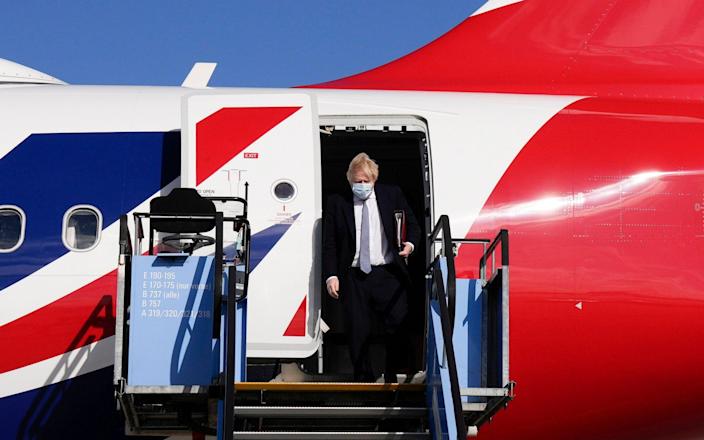
The Government has done “sweet FA” to cut red tape and risks running out of time to take advantage of Brexit, former Conservative leader Sir Iain Duncan Smith has warned.
Speaking to The Daily Telegraph for a new series on deregulation, Sir Iain said Britain has “huge opportunities now” to cut red tape in areas from finance to medical research, to “recapture some of the real dynamism” the economy needs, and move away from the EU’s “unwieldy, burdensome” model of pre-emptive regulation.
But instead the Government has failed to act and could miss its chance completely, said the MP for Chingford and Woodford Green, whose Taskforce on Innovation, Growth and Regulatory Reform (TIGR) last year proposed around 100 measures to cut excessive red tape and build new flexible regulation for emerging industries.
He said: “The Government has done absolutely sweet FA about this since we delivered the report to them.
“They should have been getting on with it now, and they still haven’t done a single element of deregulation since I produced the report.”
He fears that the Government is running out of time, more than two years on from the election and since the UK officially left the EU.
“If you want me to write the epitaph to this Government, it is full of wishful hope, but not of delivery,” Sir Iain said, warning that inexperienced ministers are too often “captured by civil servants” instead of driving the agenda.
“There is a lot to do and they think they have a lot of time to do it in, but they don’t. If we don’t get this done in the next nine months, most of this stuff, it is never going to get done, because we will be into the pre-run to an election. At that stage, what are you going to show?”
Instead, the burden of red tape is growing. The Regulatory Policy Committee, the Government’s official adviser, estimates Boris Johnson’s administration added £5.6bn to the regulatory burden on businesses just in the first year after the 2019 election.
Sir Iain said the opportunities are vast, including cutting the City loose of EU measures so it can compete on the global stage, ditching rules such as Mifid, freeing up the insurance industry to invest in more productive assets, and setting global rules alongside the US.
He said: “In financial services, we would actually then really compete with New York as global hubs.”
But he singled out the Treasury, which is responsible for much financial regulation, as a department which “does not agree about deregulation” and is “a nightmare for new areas”.


An even larger opportunity could come in scientific research.
He said: “We have the capacity to dominate the global market in health research. Just look at what happened during Covid – we still have some of the best research institutions in the world here in the UK.”
Tweaking the rules for medical trials and introducing a light-touch regulatory regime for markets such as nutraceuticals – health-enhancing foods and supplements – could give the UK the lead in new industries, he said.
“This would leave the UK as a hub for medical technology, for trials, nutraceuticals in the medical side which would be bigger even than financial services.”
Matt Hancock, the former health secretary, said Covid has shown that the state can be flexible when it needs to be, “as we did in the clinical trials for vaccines and treatments”.
Mr Hancock said: “The UK has an opportunity right now to remove burdensome regulation and allow new innovative industries like fintech to flourish.
“It is absolutely vital that we do this. The economy faces significant challenges and the only long-term way out of that is through innovation and growth.”
A Cabinet Office spokesman said the Taskforce’s report has “helped shape our ambitious plans to capitalise on new Brexit freedoms”.
He said: “Many of the recommendations in the TIGRR report are being taken forward, in areas such as data, gene-editing, artificial intelligence and future transport technologies.
“Alongside this, we have set out new measures to ensure that the UK will become the best regulated economy in the world.”




